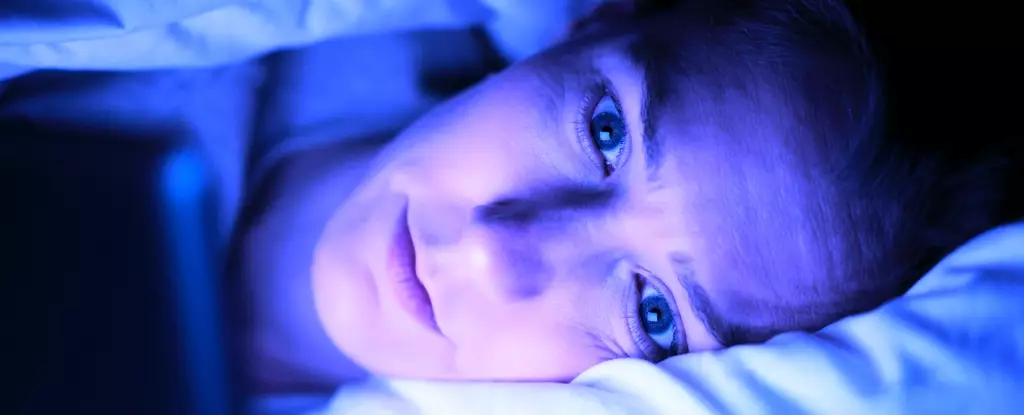Social media is constantly bombarding us with claims that our everyday habits can harm our skin. From the harmful effects of excessive sun exposure to the dangers of not drinking enough water, the list of potential skin saboteurs seems endless. The latest addition to this list is blue light emitted by our electronic devices. But how valid are these claims, and should we really be worried about the impact of blue light on our skin?
Blue light, which is part of the visible light spectrum, is primarily emitted by the sun. However, our phones, laptops, and TVs also emit blue light at significantly lower levels. While concerns have been raised about the potential impact of blue light on our health, including our eyes and sleep, researchers are now starting to investigate its effects on our skin.
One interesting finding is that exposure to blue light can stimulate the production of melanin, the natural pigment that gives skin its color. This can potentially exacerbate hyperpigmentation, especially in individuals with darker skin tones. The overproduction of melanin can lead to the formation of dark spots on the skin, making it a valid concern for some individuals.
Research also suggests that blue light may damage collagen, a protein crucial for skin structure. This damage can potentially accelerate the formation of wrinkles, giving rise to concerns about premature aging. However, the extent of this damage may vary depending on the proximity of the device emitting blue light to the skin. Keeping devices at a distance of more than 10cm can significantly reduce exposure and minimize the risk of collagen damage.
The impact of blue light on sleep is well-documented, with studies showing that exposure to blue light before bedtime can disrupt the production of melatonin, a hormone that regulates our sleep-wake cycle. Sleep deprivation not only affects our overall health but can also manifest in visible signs on our skin, such as dullness and puffiness. Long-term sleep problems can exacerbate existing skin conditions, including acne, eczema, and rosacea, due to elevated cortisol levels and a weakened skin barrier.
The beauty industry has capitalized on concerns about blue light exposure, offering a range of protective products such as mists, serums, and lip glosses. However, the efficacy of these products in combating the effects of blue light remains questionable due to a lack of rigorous testing. While mineral-based sunscreens offer effective protection against all types of light, including blue light, the efficacy of other skincare products is still under scrutiny.
To minimize the potential harms of blue light on your skin, consider implementing the following steps:
– Use the “night mode” setting on your devices or download a blue-light filter app to reduce exposure in the evening.
– Limit screen time before bed to promote better sleep and overall skin health.
– Maintain a relaxing bedtime routine to minimize sleep disturbances.
– Keep your phone or device at a distance from your skin to reduce exposure to blue light.
– Use sunscreen with broad-spectrum protection, including against blue light.
While blue light exposure has been linked to certain skin concerns, more research is needed to fully understand its effects. Prioritizing good sun protection with a broad-spectrum sunscreen is crucial in protecting your skin from various forms of light. As the beauty industry continues to develop products that claim to shield against blue light, it’s essential to approach these claims with caution and rely on proven methods of skin protection.


Leave a Reply